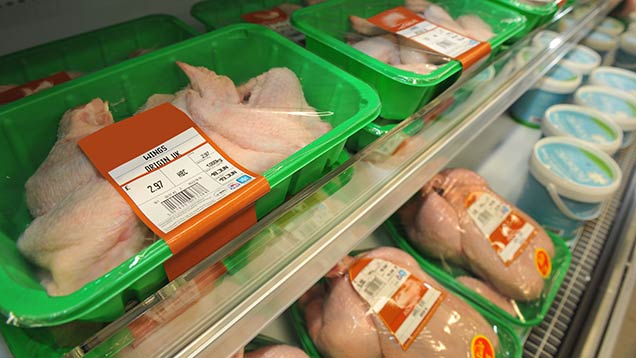Buoyant outlook for EU poultrymeat sector
 © Paula Solloway/REX Shutterstock
© Paula Solloway/REX Shutterstock Huge opportunities exist for the poultrymeat sector to both feed a growing world population sustainably and contribute to the world’s Millennium Development Goals.
Global poultrymeat consumption is predicted to overtake pork in 2020 and increase by 27% by 2023, according to EU poultry sector organisation Avec, and the industry needs to step up to the challenge.
“It is well known that poultrymeat combines the advantages of being an affordable and accessible source of protein with low fat content and low carbon emissions,” said Avec president Paul Lopez, writing in the organisation’s annual report.
See also: Rabobank latest quarterly report
“Recent FAO figures show that the poultry sector, which accounts for 35% of global livestock production, contributes only 7% to the total livestock emissions, making poultry the most sustainable meat in the world.”
Mr Lopez said the EU poultrymeat sector faced challenges in accessing new markets. While global consumption was growing, he was concerned that this would benefit the EU’s main competitors, such as China, Brazil and the US, due to stricter production standards imposed on EU producers.
“Decision makers should take into account the great potential of the European poultry business when negotiating access to the territory of our trade partners and while considering the relevance of EU livestock industry dependency on the import of (GM) feed.”
Mr Lopez added there was an issue in Europe of “matching local demand in an era of globalisation”. There remained large differences in consumer attitudes towards bird welfare and environmental issues, while consumption was markedly different across the EU.
Consumers in Portugal, for example, eat 39kg per person per year, which is three times higher than in Sweden.
Continuing to build food security across the globe was also vitally important. Cess Vermeeren, Avec secretary general, said he was pleased to see improvements in traceability. The US had introduced its Food Safety Modernization Act, while China had recently amended its food safety law.
